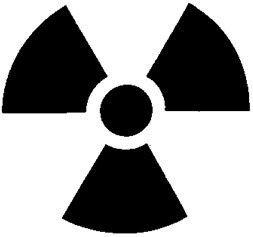Bracco expects CardioGen shipments to resume next year
by
Brendon Nafziger, DOTmed News Associate Editor | October 20, 2011

Bracco Diagnostics Inc. said it expects to resume shipments of a PET heart agent generator in the first half of next year after it was recalled this summer over fears of giving patients too much radiation. And a seller of used medical equipment said the news could lift PET-CT scanner prices.
In a letter sent to customers Monday, the Princeton, N.J.-based company said it "anticipates a limited and progressive reintroduction of the product to commence in the first or second quarter of next year."
The generator, CardioGen-82, produces rubidium-82 chloride injections, the only commercially available PET agent for myocardial perfusion studies, according to the Society of Nuclear Medicine.
The generator was recalled in July, after two patients set off very sensitive radiation detectors at the U.S. border. The U.S. Dept. of Homeland Security notified the Food and Drug Administration, and eventually the patients -- one of whom was apparently briefly stranded in Canada -- were sent to Oak Ridge National Laboratories in Tennessee, where they underwent full-body scans, according to Bracco.
A third patient also set off alarms, and it turned out the patients had all undergone PET stress tests using the substance several months earlier -- and two actually had their scans at the same Florida heart clinic.
The FDA said the problem that led to the recall, which was voluntarily ordered by Bracco, was likely caused by a "strontium breakthrough," meaning radioactive strontium isotopes used to create the PET agent were inadvertently injected into the patients.
"Our investigation findings, to date, continue to support that the unexpected radiation levels may have been due to user error or strontium breakthrough higher than what is expected with normal generator use or a combination of both," Bracco said in its letter Monday.
Root of the problem
Strontium, the parent isotope of rubidium-82, is "milked" into its daughter isotope by running a saline solution through the central column of the generators, explains Dr. Marcelo F. Di Carli, director of nuclear medicine at Brigham and Women's Hospital in Boston.
The goal is to ensure only rubidium, which has a half-life of 76 seconds, and not strontium, which has a half-life of four weeks, gets into the patient. That's why as part of the FDA's 1995 approval of the product, facilities using it should run daily "strontium breakthrough" checks.
"If you get too many strontium impurities into that solution, the consequence is you could inadvertently deliver higher radiation to patients," Di Carli told DOTmed News.
|
|
|
You Must Be Logged In To Post A Comment
|
